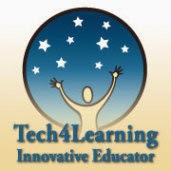
Facilitator: Brian C. Smith
Conversation Description: Diane Ackerman's quote, "play is the brain's favorite way of learning" is oft used to describe the learning that takes place in elementary schools. Despite that belief, a simple visit to any school in the country will reveal a picture that flies in the face of Ackerman's statement. We know why play is being squeezed out of schools, but bringing it back will take creative thinking ideas and sharing. Together we will discuss and construct ideas for bringing the aspects of play into more learning experiences.
Framework of Play-
•anticipation- expectation
•wonder
•curiosity
•anxiety
•uncertainty
•risk
•surprise-a-ha! moments
•discovery- a new sensation or idea or shifting perspective
•pleasure- it feels good
•understanding- new knowledge, application of ideas
•strength-empowerment, confidence, new skills
•poise-grace, state of balance, composure, contentment
What is your play history?
What do you think you learned from play?
Types of play-
creative
object
social
body and movement (rough and tumble)
spectator
imaginative
storytelling-narrative
Images: Brian C. Smith's flickrstream







